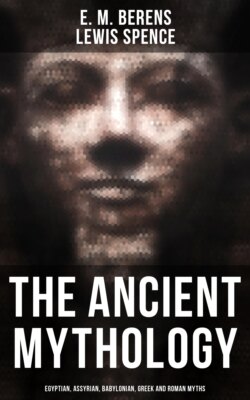Читать книгу The Ancient Mythology: Egyptian, Assyrian, Babylonian, Greek and Roman Myths - Lewis Spence - Страница 27
На сайте Литреса книга снята с продажи.
Abram and Nimrod
ОглавлениеMany Jewish legends bring Abram into relationship with Nimrod, the mythical King of Babylon. According to legend Abram was originally an idolater, and many stories are preserved respecting his conversion. Jewish legend states that the Father of the Faithful originally followed his father Terah's occupation, which was that of making and selling images of clay; and that, when very young, he advised his father "to leave his pernicious trade of idolatry by which he imposed on the world."
The Jewish Rabbins relate that on one occasion, his father Terah having undertaken a considerable journey, the sale of the images devolved on him, and it happened that a man who pretended to be a purchaser asked him how old he was. "Fifty years," answered the Patriarch. "Wretch that thou art," said the man, "for adoring at that age a thing which is only one day old!" Abram was astonished; and the exclamation of the old man had such an effect upon him, that when a woman soon after brought some flour, as an offering to one of the idols, he took an axe and broke them to pieces, preserving only the largest one, into the hand of which he put the axe. Terah returned home and inquired what this havoc meant. Abram replied that the deities had quarrelled about an offering which a woman had brought, upon which the larger one had seized an axe and destroyed the others. Terah replied that he must be in jest, as it was impossible that inanimate statues could so act; and Abram immediately retorted on his father his own words, showing him the absurdity of worshipping false deities. But Terah, who does not appear to have been convinced, delivered Abram to Nimrod, who then dwelt in the Plain of Shinar, where Babylon was built. Nimrod, having in vain exhorted Abram to worship fire, ordered him to be thrown into a burning furnace, exclaiming—"Let your God come and take you out." As soon as Haran, Abram's youngest brother, saw the fate of the Patriarch, he resolved to conform to Nimrod's religion; but when he saw his brother come out of the fire unhurt, he declared for the "God of Abram," which caused him to be thrown in turn into the furnace, and he was consumed. A certain writer, however, narrates a different version of Haran's death. He says that he endeavoured to snatch Terah's idols from the flames, into which they had been thrown by Abram, and was burnt to death in consequence.
